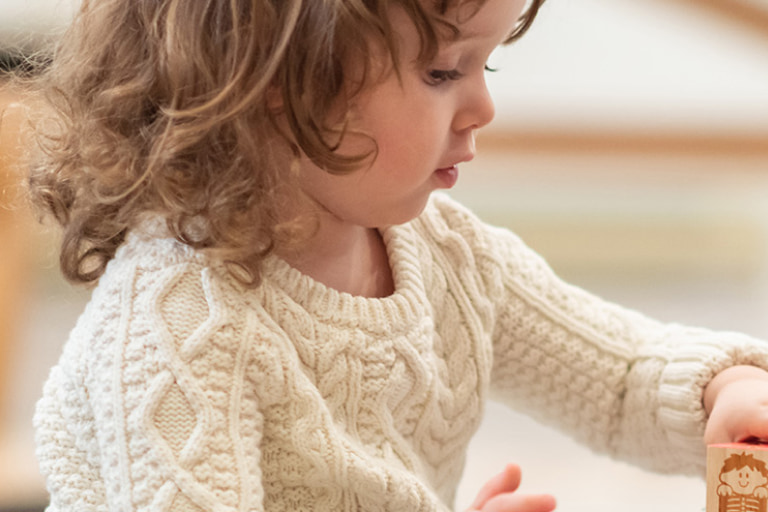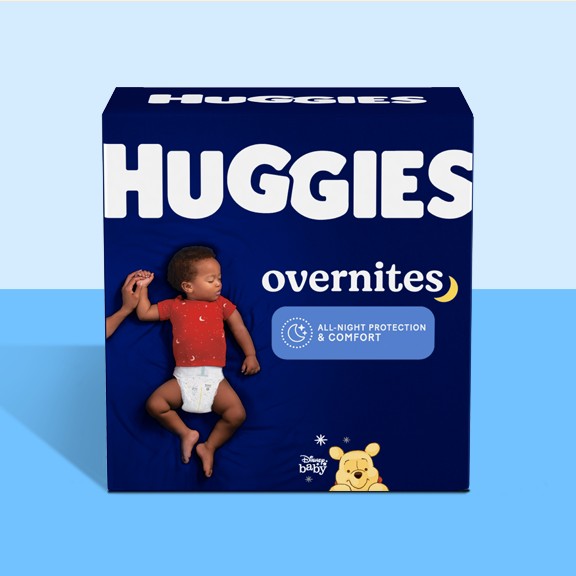Growth and development at 23 months old
Your toddler's facial appearance may still be quite immature now—their eyes, nose, and mouth are still concentrated in the lower of their face. This will make them look very cute, and it is hard to ignore their constant requests. If you feel the need to pick them up and give them a big hug and kiss, then just go for it. Nature has designed your toddler to be totally appealing to you, even though at times their behavior may leave you shaking your head.
Check your toddler’s shoes to make sure they still fit. Sandals are ideal to gauge correct size, but enclosed shoes can be more of a challenge. When buying new shoes look for ones that don’t have a rigid sole and don’t bend. Some flexibility in the sole is important.
When buying new shoes, look for a size that allows for at least your thumb width from the top of their toes to the tip of the shoe. Although buying shoes with the knowledge that they will grow into them may save you money, there is a point where shoes that are too big become risky to wear. Tripping is a common result when there is too much empty space at the front of a child's shoe.
Play and interaction at 23 months old
Encourage your toddler to be creative and use nature-sourced items in their play. Seed pods, leaves, grass, and even feathers introduce another dimension. Your toddler will look to you for approval when they seek out different things to play with, so be encouraging when they are on their little voyages of nature discovery.
Look for games that balance interaction and solo play. Even at this young age, your toddler will be learning what's involved in entertaining themselves and keeping their brains active. If you have other children, they will eventually all be playing together.
What you can expect at 23 months old
This is really the age of discovery and adventure which means your toddler is bound to get into a bit of mischief. Watch the messages you give them and try not to be negative. Frame your language in positive ways such as, “put the cup down gently” rather than “don’t bang the cup.” Of course, there'll be days when it seems that parenting is the easiest thing you've ever done and others where you'll question your own abilities. Parenting is a marathon not a sprint, so pick your battles.
Your toddler will let you know they're awake in the mornings, so shelve any plans for sleeping in. If they are in a bed, they'll come looking for you and probably want to climb in with you to snuggle. This can be a lovely time of the day when they are still sleepy and cozy, but ready for a new day of adventures. When time allows, make the most of these opportunities. Have a little chat about what they’d like to do that day, what they dreamed about, and what they want for breakfast.
Food and nutrition at 23 months old
It is normal for toddlers to vary their intake and go through stages of not wanting or needing to eat much. They make up for it at other times when it seems difficult to fill them up. Offer them only healthy food choices and think about whether their food is supporting their body to grow strong. Read labels, know what is in their food, aim for less packaged or processed foods where possible, and role model healthy eating yourself.
If your 23-month-old isn’t fond of drinking whole milk, offer it to them in alternative forms, such as in yogurt or cheese. These are all great sources of calcium and phosphorus. Mix grated cheese with their vegetables, add a little butter to their meals, or spread some cream cheese on a couple of crackers. Boneless fish and green leafy vegetables are also good sources of calcium.
Keeping your toddler healthy at 23 months old
If your toddler has been sick and has now recovered, replace their toothbrush and change their bed linen. If they were prescribed antibiotics, make sure to finish the entire course. Make sure you have acetaminophen in the house and enough in the correct strength for your toddler's age and weight. Trying to find a late-night pharmacy is a situation best avoided.
If your toddler is toilet training, show them how to flush the toilet and wash their hands afterwards. Have a step stool in the bathroom and everything they need so good hand hygiene habits are formed from the beginning.
General tips
- Play games which require matching and grouping like objects together. Recognizing similarities come with age and practice and is a lifelong skill.
- Keep talking, singing, rhyming, and laughing with your 23-month-old every day. Try not to take life too seriously and aim to keep things simple. Your toddler won’t care how clean the house is or how organized the cabinets are. But they will notice if you are happy and animated and show pleasure in just being with them.
- If your toddler is going to day care, learn to be very organized. Avoiding the early morning rush by preparing their clothing and lunch the night before. Try investing in a slow cooker and using whatever technology is available to make life easier.
- Introduce your toddler to people when you see them and be aware that they are listening. The days of having an uninterrupted conversation are over and if your toddler wants to add their own thoughts to the conversation, let them.
- When your toddler says something funny, write it down and keep in a safe place. You'll read back over these comments in years to come and they'll give you and your growing child a warm glow.
The information of this article has been reviewed by nursing experts of the Association of Women’s Health, Obstetric, & Neonatal Nurses (AWHONN). The content should not substitute medical advice from your personal healthcare provider. Please consult your healthcare provider for recommendations/diagnosis or treatment. For more advice from AWHONN nurses, visit Healthy Mom&Baby at health4mom.org.










